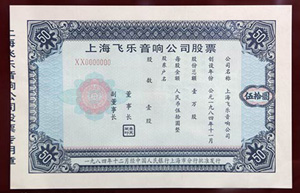Regulator says capital outflow fears unfounded
Updated: 2014-10-24 07:14
By Jiang Xueqing(China Daily)
|
||||||||
China is not at risk from large-scale capital outflows, although it experienced a net outflow under the capital account in the third quarter, which was in line with the nation's target of achieving equilibrium in the international balance of payments, the State Administration of Foreign Exchange said on Thursday.
Preliminary estimates by the SAFE indicate that China saw deficits in the capital and financial accounts in the third quarter while posting a current account surplus.
During the same period, the trade surplus hit $128.1 billion, up 48 percent quarter-on-quarter and 111 percent year-on-year.
In the second quarter, despite an expansion in the trade surplus, China recorded a net outflow of $16.2 billion under the capital account, swinging back from a net inflow of $94 billion in the first quarter.
These shifts "will help China achieve equilibrium in the international balance of payments and will also create favorable conditions for the central bank to improve macroeconomic regulation and create more leeway for monetary policy operations", said Guan Tao, head of the SAFE's department of international payments, at a news conference in Beijing.
Fluctuations in the capital account are partly connected to reform of the exchange rate mechanism of the yuan. As part of the reform, the People's Bank of China, the central bank, doubled the daily trading band for the yuan against the dollar to 2 percent effective March 17.
Furthermore, the central bank is gradually reducing its intervention in the foreign exchange market, which means capital outflows will increase as the trade surplus widens.
The reform program has achieved the desired goals, Guan said.
On the whole, China maintained a net capital inflow in the first three quarters.
The foreign exchange settlement-sales surplus reached $172.3 billion, up 3 percent year-on-year, excluding the impact of the exchange rate.
In spite of a slowdown in property market, China still had a $520 million net inflow of funds from non-residents to buy houses and a $20.1 billion net inflow of foreign investment in the housing sector during the first three quarters.
Guan forecast that cross-border capital flows would approach a balance, with some fluctuations.
"China is moving toward a general equilibrium of current account balance. The yuan exchange rate is also approaching a reasonable and balanced level. Under these circumstances, two-way fluctuations of cross-border capital flows are likely to become the new norm due to increasing economic uncertainties in and outside China," he said.
According to the central bank, foreign exchange reserves totaled $3.89 trillion on Sept 30, dropping by $100 billion from June 30.
Guan said the decline was mainly caused by the strengthening of the dollar in the third quarter, which led to a reduction of assets in other currencies that were calculated in dollars. In essence, it was simply a paper loss rather than an actual loss.
"Exchange rate fluctuations of major currencies in the international market will cause China's foreign reserves to rise or fall, but the impact will be limited, considering the large size of the reserves, and it should not be over-analyzed," he said.
|
 |
 |
| China's Top 10 stock market milestones | A tick for graft fight, but much more is needed |
- Party points way for rule of law
- Party's leadership "most fundamental guarantee" for rule of law in China
- CPC officials ordered to stop meddling judicial cases
- Rule of law must follow China's path
- Senior justice official probed in Hunan
- PepsiCo sponsors Tsinghua University to train future biz leaders
Most Viewed
Editor's Picks

|

|

|

|

|

|
Today's Top News
New York doctor tests positive for Ebola
Virgin America expands link with China Airlines
Alibaba's Ma heads for Hollywood in search of content
8 popular icons on traditional Chinese architecture
The Forbidden City relives in Vancouver Art Gallery
Top talent exits pose problems for CICC
Regulator says capital outflow fears unfounded
China's manufacturing expands in October
US Weekly

|

|















